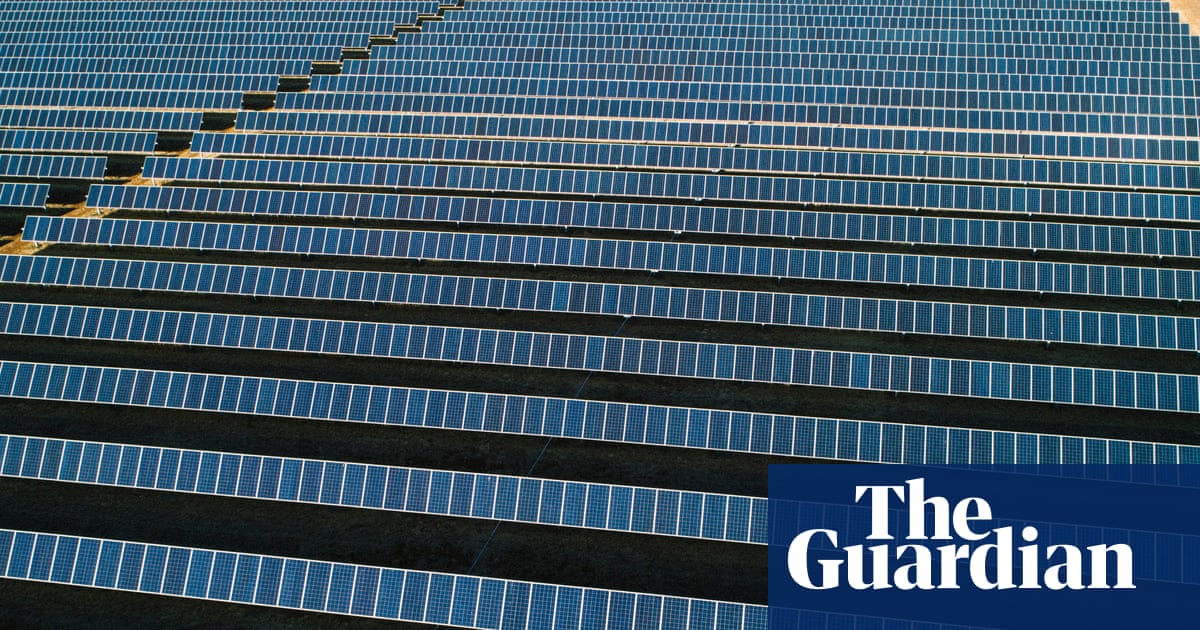Energy company SunCable says a massive solar farm it has proposed building in the Northern Territory could power an AI data centre precinct in the region to position Australia as a global leader in “green industrial development”.
The development would be Australia’s largest solar farm and would generate up to 20GW of electricity, or 10 times the output of a large coal-fired station. It would add to the company’s plans to build a 12,000 ha solar farm at Powell Creek Station south of Elliott as part of its proposed Australia-Asia Power Link project.
The proposed development at Muckaty Station in the Barkly region would clear an estimated 50,000 ha of land – the equivalent of about 25,000 MCGs – including habitat critical to the survival of the bilby, according to documents SunCable lodged with the NT Environment Protection Authority.
SunCable chief executive Ryan Willemsen-Bell said the company’s combined NT developments offered “a compelling proposition to attract global investment in an AI datacentre precinct”.
But the scale of the Muckaty proposal has sparked concern from the territory’s peak environmental organisation, the Environment Centre NT (ECNT), which said the size was “simply gobsmacking and is possibly unparalleled in Australia, or for that matter the world”.
A SunCable spokesperson said the company had been in talks with “global hyperscalers” – a term for companies that build and operate large datacentres for the provision of cloud computing services – during the past 18 months.
The unnamed companies were seeking access to “low cost, low carbon energy solutions” that could supply first datacentre operations in the Barkly region by 2028 “and then scale to support increasing demands for next-generation AI infrastructure in the years following”, they said.
Willemsen-Bell said SunCable could provide off-grid infrastructure that could reduce the impact of datacentres “on the delicate energy balance of the national electricity market”.
“This is a pivotal opportunity for Australia to establish itself as a global leader in sustainable AI infrastructure, digital technology and green industrial development. Australia can lead – not be left behind,” he said.
On Monday, SunCable reached an agreement with traditional owners and the Northern Land Council for the construction of the 12,000 ha solar farm on Powell Creek Station.
after newsletter promotion
The documents lodged with the EPA for the Muckaty solar proposal state the company “is committed to refining the footprint” to “avoid direct impacts to occupied greater bilby sites”. The company’s spokesperson said further studies in consultation with traditional owners would help inform the selection of smaller sites within the 50,000 ha “area of interest”.
Kirsty Howey, the executive director of ECNT said the environment group was particularly concerned “about the potential destruction of swathes of bilby habitat, one of Australia’s most iconic animals, as well as potential impacts on precious water resources in this arid region.”
“We understand this project is primarily about supplying energy to industrial customers. We are concerned that it won’t deliver energy security to communities in the Barkly region, who are experiencing chronic energy poverty and injustice amid worsening impacts of climate change,” she said.
Dr Dylan McConnell, an energy systems researcher at the University of New South Wales said it was difficult to tell how much of the public discussion about potential datacentre demand for energy from Australian projects was just “hype”.
“There’s questions about how much of this demand for datacentres is actually going to materialise,” McConnell said.
SunCable’s spokesperson acknowledged the scale and said the company understood “large projects attract close scrutiny”.
“The purpose of this process is to gather evidence, refine the project footprint and ensure responsible design before any decisions are made.”
They said the company was committed to avoiding or mitigating effects of the project on the bilby and to “sustainable use of water resources”.
